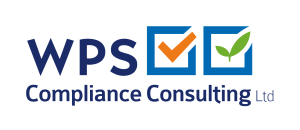What does an environmental consultancy do?
An environmental consultancy is an organisation that specialises in offering expertise and solutions related to environmental challenges. Their scope of work often includes conducting environmental impact assessments (EIAs), monitoring air and water quality, managing waste, and developing strategies for reducing carbon emissions. These consultancies act as intermediaries between businesses and regulatory bodies, ensuring compliance with environmental laws.
In addition to regulatory compliance, many environmental consultancies also provide advisory services to help organisations implement sustainability initiatives.
The importance of environmental consultancy in modern construction
In an era where environmental consciousness is growing, the public is becoming more aware of ecological issues and environmental regulations are becoming stricter. As a result, businesses are facing great pressures to operate sustainably. Environmental consultants help organisations navigate this complex landscape, ensuring compliance and reducing environmental harm.
Incorporating environmental consulting into construction management offers numerous benefits:
- Regulatory Compliance: Avoiding fines and project delays by meeting all environmental regulations.
- Cost Savings: Reducing long-term costs through efficient resource use and waste management.
- Community Support: Gaining community approval by demonstrating a commitment to environmental stewardship.
- Enhanced Reputation: Positioning the company as a leader in sustainable construction.
The Role of Environmental Consultancy in Construction
- Site Assessment and Analysis
One of the chief responsibilities of an environmental consultant is to conduct thorough site assessments to determine any risks and liabilities. A general analysis includes assessing general soil quality, water resources, vegetation, erosion and sediment control, and any unseen impact on nearby ecosystems.
- Regulatory Compliance
Environmental consultants are well-versed in local and national regulations, ensuring that construction activities comply with all applicable laws. This includes obtaining necessary permits and approvals to proceed with projects legally, thereby, avoiding financial damages and project suspensions.
- Environmental Impact Assessment
Environmental impact assessments (EIAs) are comprehensive evaluations that are more detailed than general site assessments and gauge how a construction project may affect the surrounding environment. Environmental consultants analyse the potential consequences on air and water quality, wildlife habitats, and overall biodiversity. This assessment aids in identifying ways to mitigate adverse effects and promotes sustainable development.
- Sustainable Construction Practices
Promoting sustainability is a key aspect of an environmental consultant’s role. That’s why environmental consultants will collaborate with architects, engineers, subcontractors, and site operatives to integrate sustainable practices into the project design and execution. This may involve recommending energy-efficient technologies, energy-efficient materials, and waste-reduction strategies.
- Waste Management and Recycling
Construction projects generate significant amounts of waste, which is bad for the environment and increase costs. Environmental consultants work to develop waste management plans, emphasizing recycling and proper storage/disposal methods. Implementing effective waste management strategies minimizes the project’s environmental footprint and protects the site from liability, whilst promoting Circular Economy strategies.
- Worker Health and Safety Protection
Sustainable building practices are good not only for the environment but also for workers. Between choosing safer materials, identifying any known pathogens or contaminants, and protecting worksites from geological hazards, environmental consultants can draft construction safety plans that make worksites safer for workers.
How can WPSCC help?
WPSCC offers a range of environmental consultancy services in the field of construction and the product list involves the following:
- Environmental Permitting
- ISO 14001 Advisor
- Environmental Management System (EMS)
- Exemption Registration
- Waste Classification
- Waste Audit including Duty of Care checks
- Carbon Monitoring
- CL: AIRE Protocol
- Energy Management Plans
- Environmental Mapping
- Fire Prevention Plans
- Material Management Plans
- Air Quality Dust Management Plan/ Construction Environmental Management Plan (AQDMPs / CEMPs)
There is a need for the commercial properties in London to become more energy efficient. Developers must follow the energy hierarchy when planning a new building. This means:
- being lean: using less energy, by improving the energy efficiency of the building itself, so less energy is needed for heat
- being clean: supplying energy efficiently, for example by using district heat networks
- being green: using renewable energy technologies, like solar photovoltaic panels or heat pumps.
WPSCC can help achieve these targets through their Planning services and helping them obtain BREEAM credits.
WPSCC follows this quote “Making a difference to our clients’ lives and the environment with our unique approach to solving their compliance challenges” in their everyday tasks.
References
The Role of Environmental Consulting in Sustainable Construction — Three Rivers Consultants
cavendishprofessionals.com/environmental-roles-within-the-construction-industry/
What Are Environmental Consulting Services? | HSQE Consultancy
What Role Does an Environmental Consultant Play in Construction? – Path Light Pro


